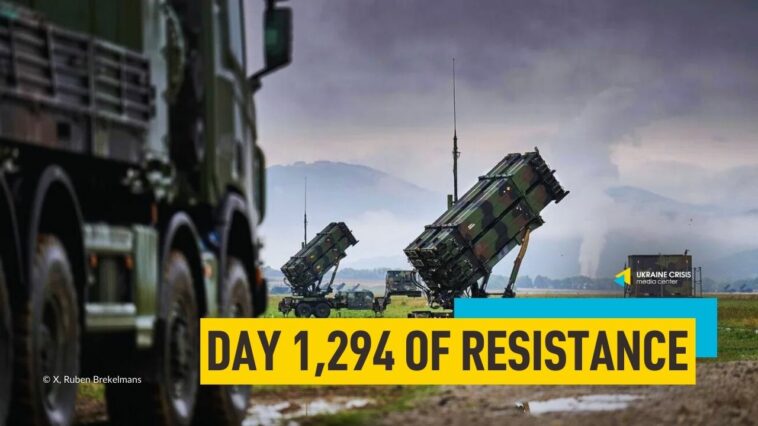Ukraine is at risk of air defense shortages as the Pentagon slows shipments, the FT says. Explosions disable key gas pipelines in Russia’s Penza, Ukraine’s defense intelligence says. The U.S. terminates agreements with European countries to fight disinformation from Russia, China and Iran, the FT says.
Ukraine at risk of air defense shortage as Pentagon slows shipments, FT says
Ukraine is at risk of shortages of air defence weapons after a US defence department review of military aid resulted in slower deliveries just as Moscow intensifies air attacks, according to western and Ukrainian officials, the Financial Times said on Tuesday. The paragraphs below are quoted from the article.
Pressure on supplies has become more acute after months of irregular and smaller than expected shipments since a Pentagon directive in June. Officials and analysts warned that if Moscow keeps escalating or just sustains its higher tempo of missile and drone attacks, Ukrainian air defence units will face shortfalls.
“It’s a question of time for when munitions run out,” said a person familiar with US deliveries of air defence materiel to Ukraine.
Explosions disable key gas pipelines in Russia’s Penza, Ukraine’s defense intelligence says
A series of explosions in the Russian city of Penza on Monday disrupted key gas pipelines, Ukrainian media said on Tuesday, citing sources in the Main Intelligence Department of Ukraine’s Defense Ministry.
According to Ukraine’s defense intelligence, at least four blasts tore through the Zheleznodorozhny district of Penza at 4 a.m., disabling two mainline gas pipelines capable of transporting two million barrels per day. The explosions also damaged two regional gas arteries.
Several hours later, local Russian media published reports claiming that the incidents were part of “planned exercises” involving emergency and security services. Officials urged residents to remain calm and ignore messages circulating on social media about explosions.
Both conduits supplied gas to the Russian military, the sources said.
Ukraine’s defense intelligence said on Tuesday that its drone units struck Russia’s high-value air defense installations in occupied Crimea ahead of Military Intelligence Day. The holiday is observed on September 7.
Its forces hit a Podlyot 48Ya6-K1 radar and a RLM-M module of the Nebo-M 55Zh6M system. The RLM-M radar module was struck as it was being moved from combat positions, Ukraine’s defense intelligence said.
U.S. terminates agreements with European countries to fight disinformation from Russia, China, Iran, FT says
The US has informed countries in Europe that it is stepping back from joint efforts to combat disinformation from countries such as Russia, China and Iran, according to three European officials familiar with the matter, cited by the Financial Times on Monday. The paragraphs below are quoted from the article.
European countries received a notice from the State Department last week that the US is terminating memoranda of understanding that were signed last year under the Biden administration, which sought to forge a unified approach to identifying and exposing malicious information spread by foreign governments seeking to sow chaos.
The memoranda were part of an initiative spearheaded by the Global Engagement Center (GEC), a State Department agency that tackled disinformation spread overseas by US adversaries and terror groups.
James Rubin, who served as head of the centre until December, described the move as a “unilateral act of disarmament” in the information war with Russia and China. “Information warfare is a reality of our time and artificial intelligence is only going to multiply the risks from that,” Rubin said.
About 22 countries in Europe and Africa signed the agreements with the US over the course of last year, Rubin estimated. They formed part of the Biden administration’s framework to counter foreign state manipulation, which sought to develop a shared understanding of the threat and to work with partner countries on a unified response. The decision to terminate the memoranda of understanding was first reported in the Atlantic.

